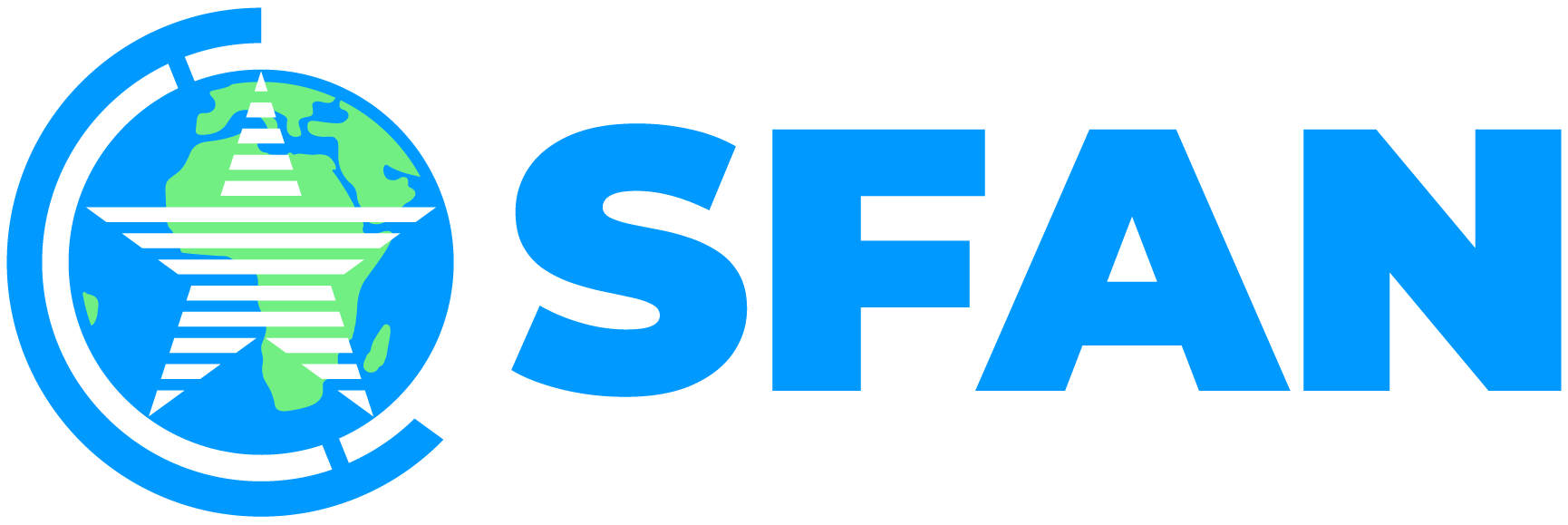What Can Technology Do in Africa: Looking at The Tools and Challenges
by Bridget Boakye · Business advice
Mon, 05 Sep 2016 · 3 minute read
Share
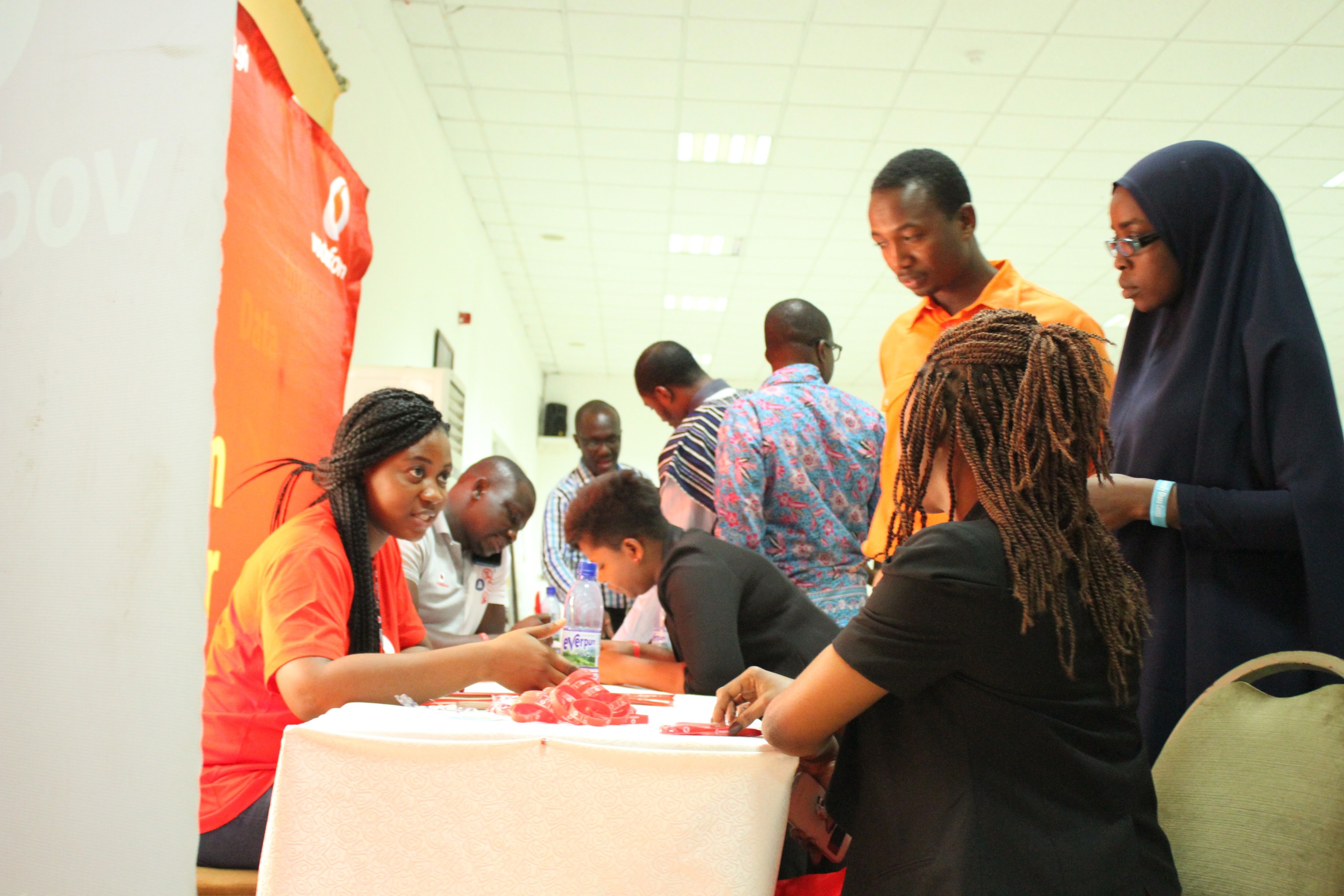
On the heels of Facebook CEO Mark Zuckerberg’s trip to Africa, some young African leaders and I sat to consider the question Zuckerberg is looking to answer: what can technology do in Africa?
On September 31st, 2016, I had the privilege of moderating a panel on technology in Africa for over a hundred young African leaders. Stars From All Nations, a by-and-for youth social enterprise, organized the second edition of the Quantum Leap Career Fair for President Obama’s Young African Leaders Initiative (YALI), West Africa. The event brought together 20+ companies in sectors, such as education, technology, fashion, agribusiness, real estate, etc.
The goal: explore how these leaders can harness technology, specifically digital and mobile technology, to deepen the impact of their work on the continent.
To note: the YALI cohort is the cream of the crop of their peers. They have been selected from over 10,000+ applicants from 9 West African countries. In the 5-week program held in Accra, these young leaders learn the skills and tools to be effective change-makers in their communities.
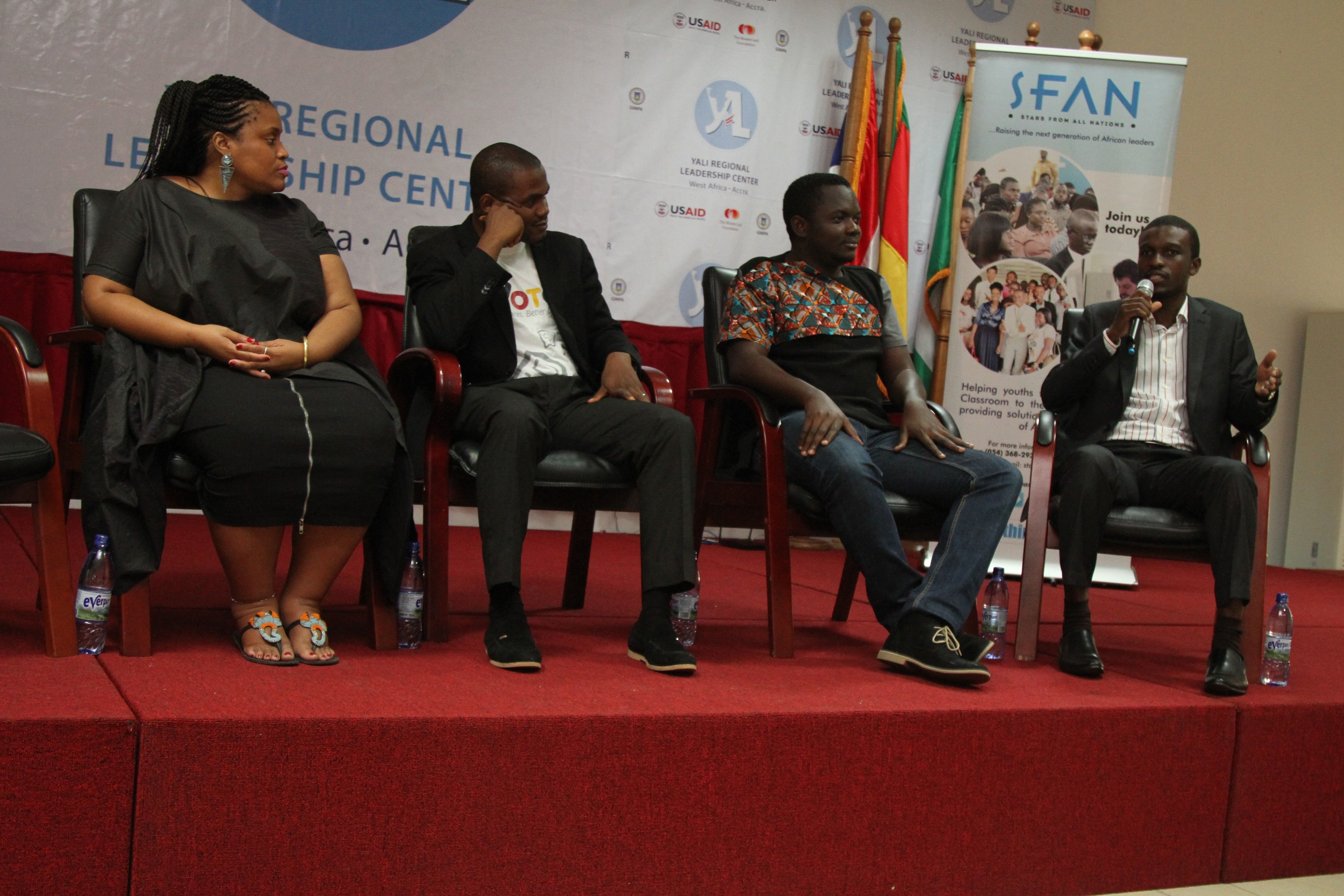
Young African Leaders Explore the Potential of Technology as SFAN hosted Quantum Leap Career Fair for participants of YALI West Africa.
On the panel:
- Racquel Wilson: Communications and Branding Expert helping innovative companies and leaders tell compelling stories about their work
- Moussa Moumouni : Regional IT Manager for Unilever West Africa, one of the largest producers/retailers of consumer goods in Africa
- Louis Mensah: Director of Private-public partnerships at VOTO mobile, a mobile platform which connects organizations to their under-heard constituents
- Alloysius Attah: CEO and Cofounder of Farmerline, a technology company empowering farmers in Africa
Having been raised in the U.S. and returning to Ghana 8 months ago, I had the opportunity to consider this conversation in light of both experiences, comparing and contrasting realities in both places.
These are the insights that stood out to me:
1. We need to urgently encourage young Africans to develop technology-enabled capacities and businesses
As the panelists expressed, if we believe that the future of technology in Africa is NOW, then we must embrace and adopt technology with urgency and intention. We must do a better job of engaging in conversations and developing strategies and capacities that will allow young people to learn of and understand the inherent benefits of technology so that they instinctively want to develop these skills.
Why?
There were way too many young leaders in the audience working on a number of projects for which they did not have an active presence online — neither a website or social media account. A young woman came up to me at the end of the panel to share that she does hair and sews African clothing but is not online and wants to learn how to get there. I was excited about the possibility of showing off her skills and creations to a world now eager for African clothes and fashion.
It occurred to me: this woman’s absence online is a huge loss for the continent; a loss magnified by the sheer number of Africans in her position.
In fact, a question we must all ask ourselves is this: what is the world missing from Africa because we do not have access to the ideas and talents of these young people?
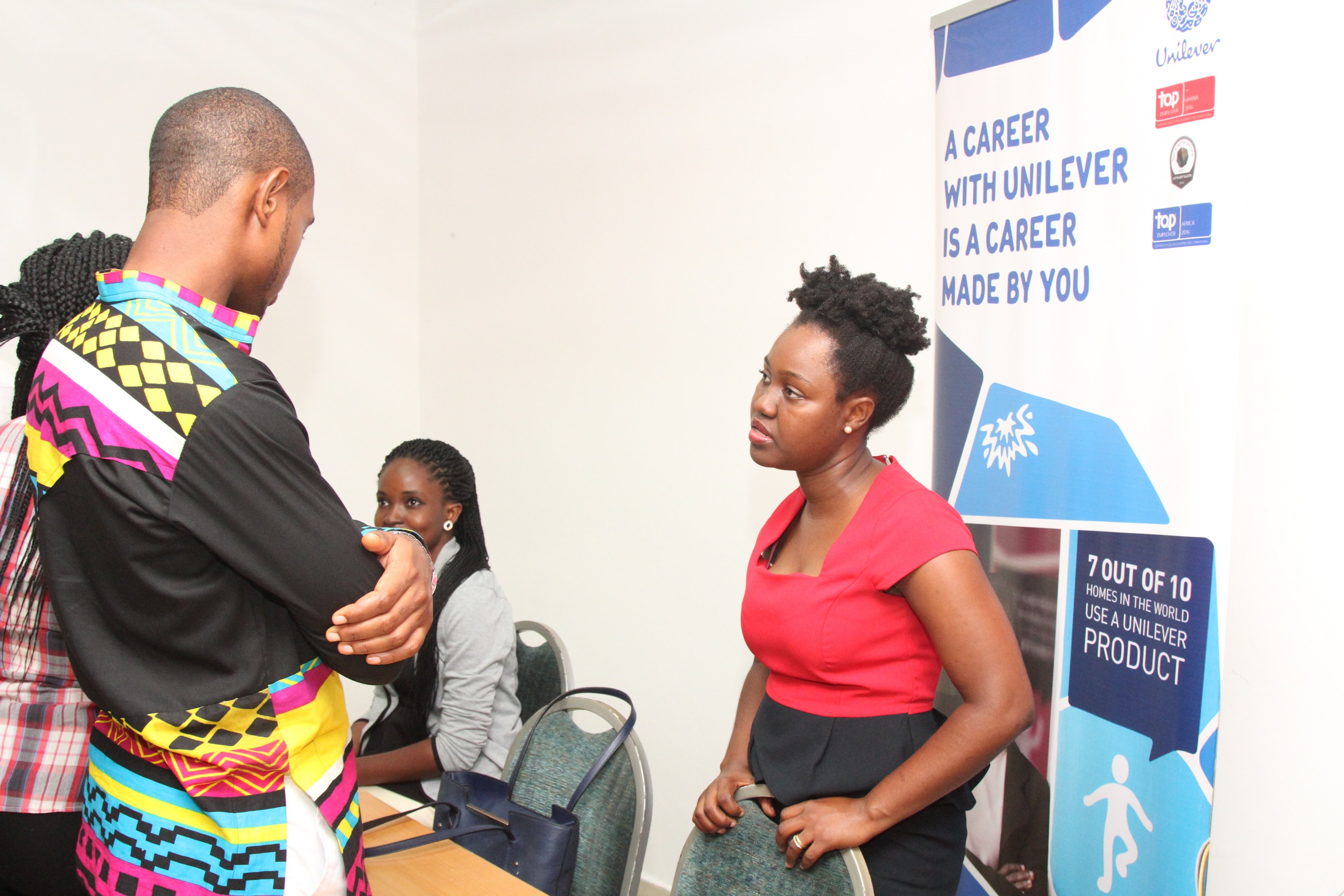
2. The tools for business in Africa may and will look different than that elsewhere
I asked our panel to list the technologies they use in their work. They all mentioned Google Drive and email for their effectiveness in sharing and collaboration. I intimately know and understand that many young Africans, including those in some top-tier universities around the continent, are not using the cloud software (Google Drive), but are rather, still sharing, copying, and re-composing their projects. It is quite costly to stay online and do work.
But, what young Africans do have and use: WhatsApp.
Whereas WhatsApp is scarcely used in the U.S., in Africa, and elsewhere in the “developing world”, WhatsApp is a prominent feature of our daily lives. “Whatsapp for Business” is a reality. Panelist Alloysius Attah shared the importance of the app for collaboration between his team and their partners at Farmerline.
With dispersed teams and customers (ex. some members in Accra & Kumasi, Ghana & the U.S. at VOTO mobile) and data inefficiencies across the continent, WhatsApp stands out as a cheaper alternative to perhaps other more effective tools for team management and productivity. In fact, the same can be said of mobile money — a tool initially designed to increase access to banking for the informal sector — with a growing presence in the formal sector.
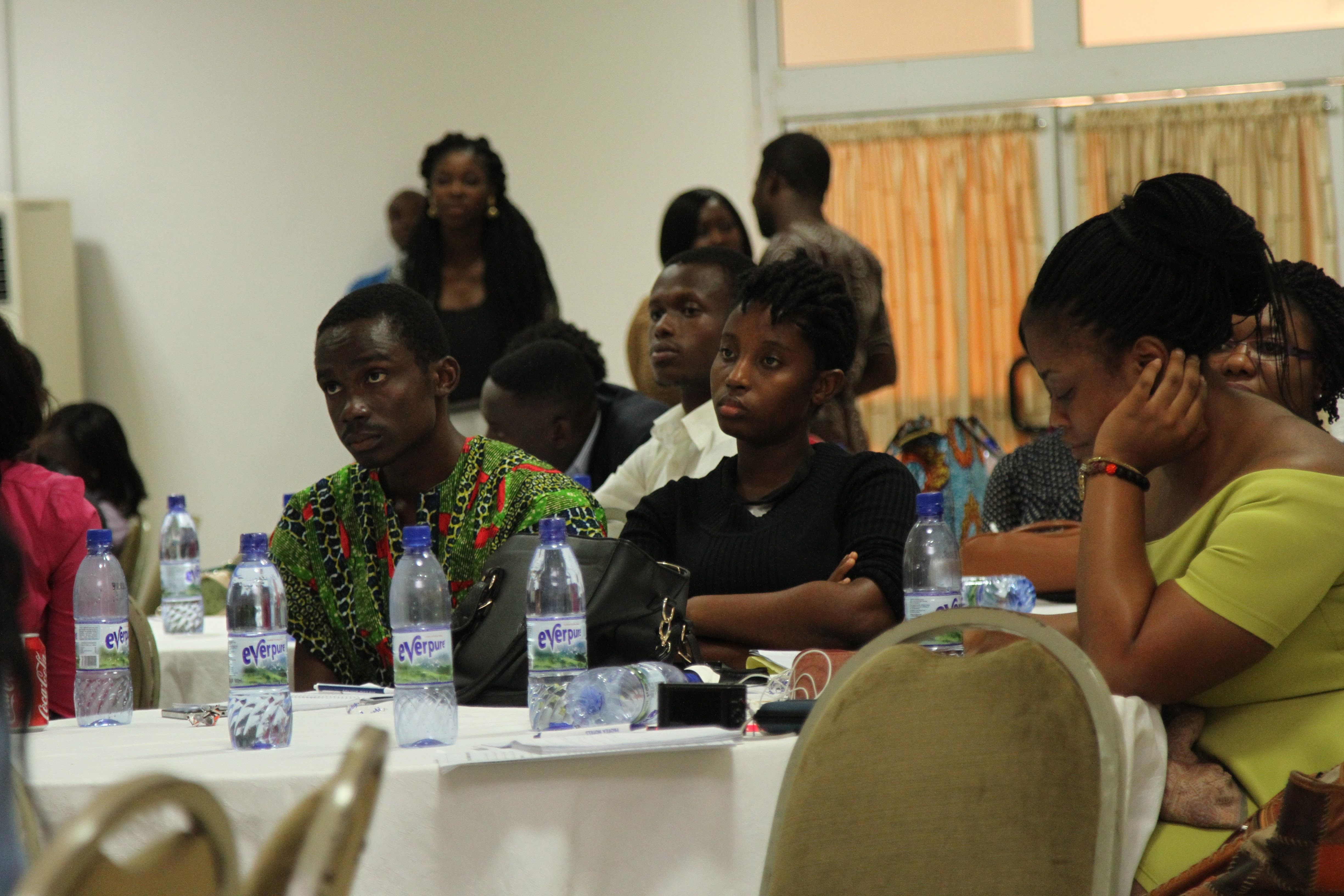
3. Technology is still expensive, both directly and indirectly for businesses, entrepreneurs, and leaders in Africa
Even as the internet continues to penetrate further into the continent, staying connected is expensive. Young African leaders face extraordinary costs for data, and constant service interruption, power outages, and slow delivery makes staying productive online a huge battle.
Panelist Moussa Moumouni explained that one way Unilever West Africa deals with connectivity issues is by having 2–3 providers. While a great solution for a Fortune 500 company operating in Africa, it is an impossible solution for the young coder or marketer, and the implications of this reality must be considered as we forge ahead.
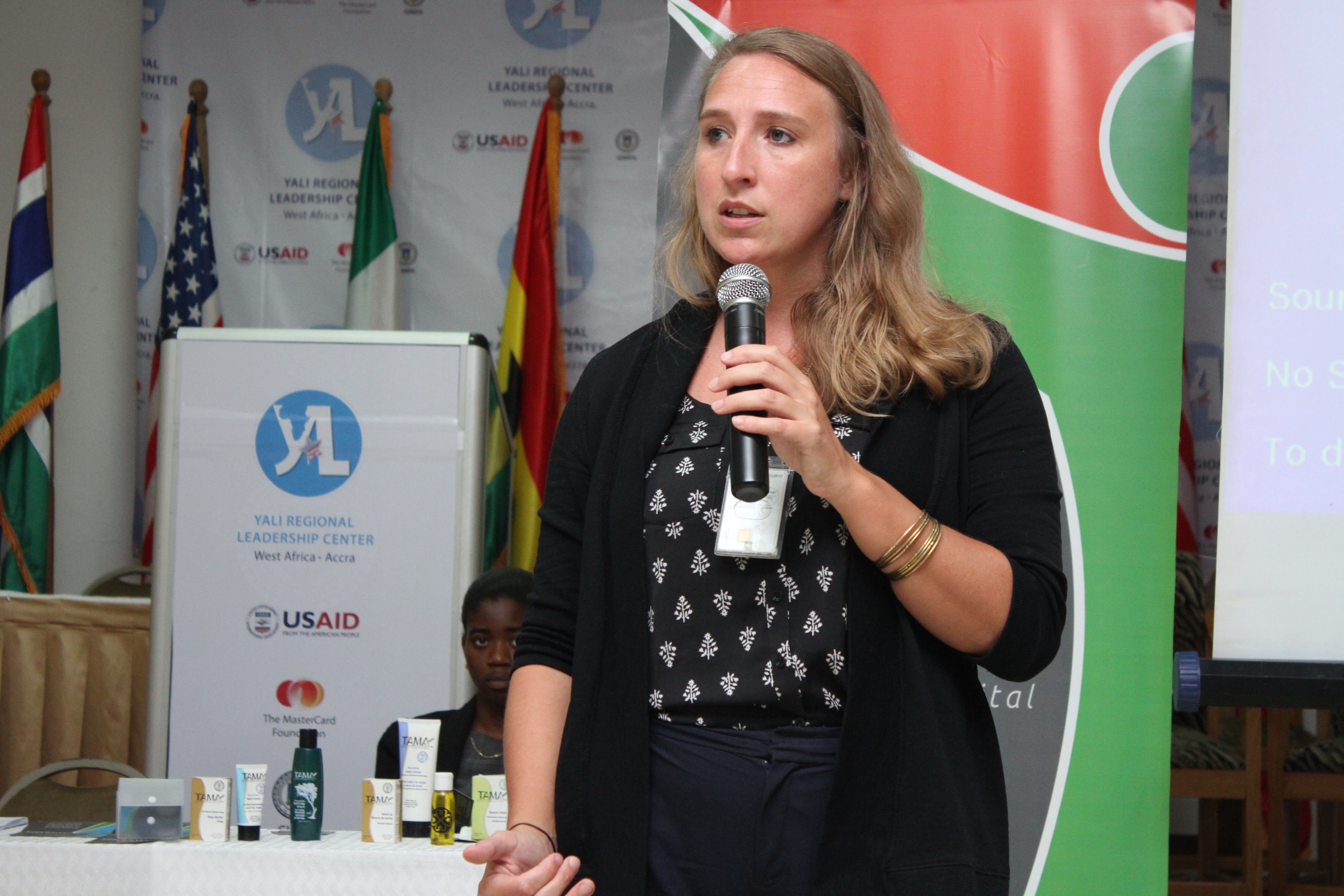
4. The consumer market for technology products and services is not ready for the innovative products being developed
VOTO Mobile and Farmerline are two companies whose mission would suggest a direct consumer strategy. VOTO mobile connects the under-heard through cheap two-way communications. Farmerline gets relevant information to farmers to improve productivity and yield.
But it is incredibly difficult to get a farmer or a person off-grid to first know about, then buy into, and finally start using a new technology at a rate that will allow a startup to scale effectively.
One strategy that works is this: “sell upstream” or business-to-business. As panelist Alloysius Attah shared, Farmerline later decided to connect with organizations working with farmers rather than farmers themselves.
A consumer segment that is not ready for your product is no reason to give up. Rather, re-engage and explore what other parties and consistencies in your market are connected to your direct consumer and can make use of your product or service.
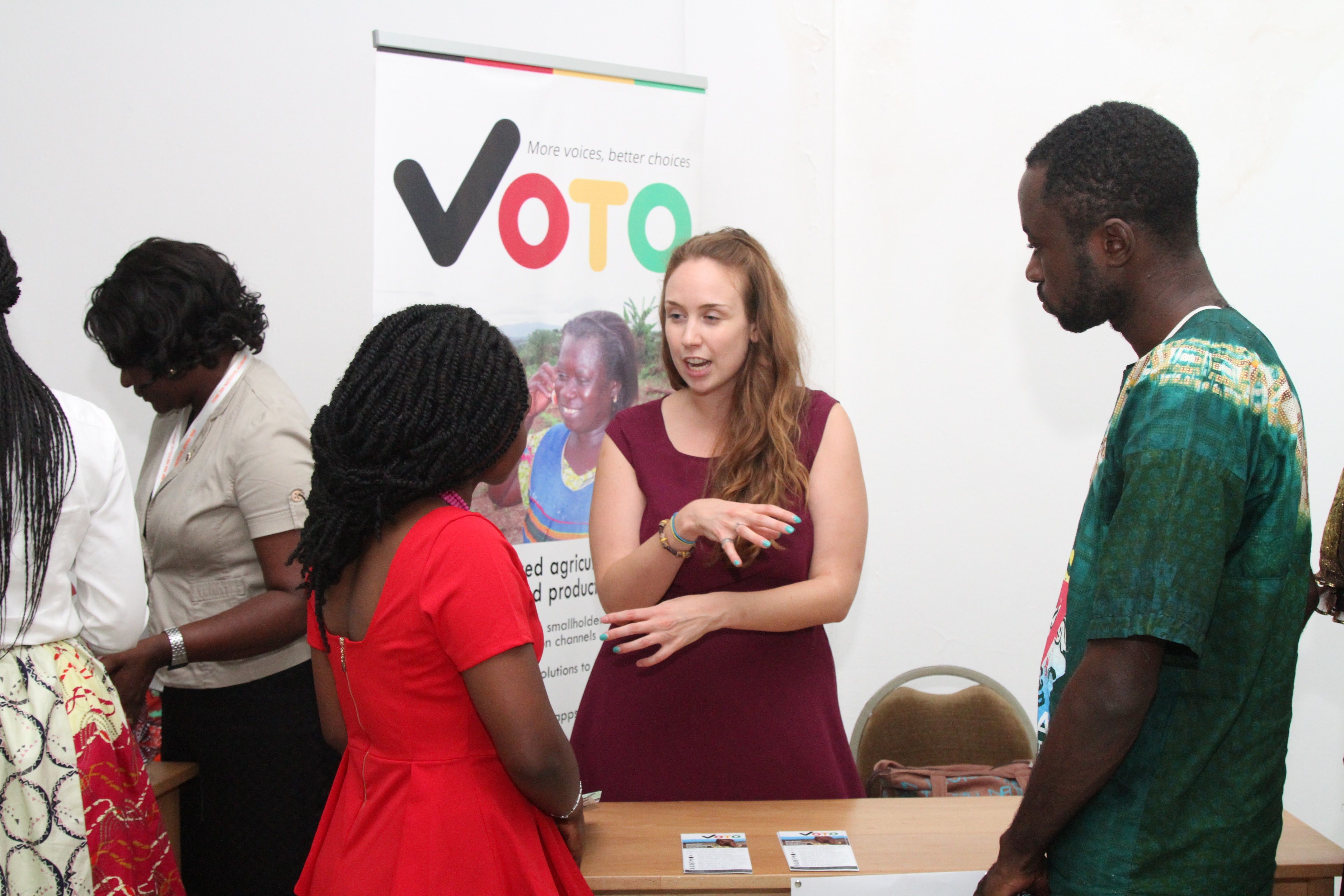
5. Young African leaders are willing to train and engage their generation and those coming after
Perhaps the best question that came from the audience was this: “What packages do you or your company have for young Africans who want to develop their skills and build their businesses?”.
While the panelists said they did not have “packages” available (to which we all laughed), they all offered to provide opportunities for YALI fellows to engage and learn from them. Many even said they would open up internship opportunities for this cohort and others willing to learn.
This is great news! Though challenges abound in developing a technology-enabled Africa, sharing resources, talent, and tools is one way to leverage each other for maximum impact.
How SFAN Integrates Africa's Youth Into the Global Workforce
SFAN established the transformational ReadyforWork accelerator to unlock the potential of Africa's budding talents and help them become part of the global workforce.

Unveiling ReadyforWork
For entry-level job seekers and early career professionals who need tools, services, and support to learn new digital skills to launch or future-proof their careers, ReadyforWork offers an Al-assisted education solution with a market-aligned curriculum, clear career path and tools to prove their skills to prospective employers.
The platform is a two-sided marketplace. It helps learners understand how they stack up against their competition, gives them resources to level up and become of higher value when looking for gainful and meaningful work, and gives employers access to an emerging talent pipeline for a global workforce --with data-driven mechanisms to assess that talent.
Unlike other training programs that major in providing certifications, which do not work, ReadyforWork focuses on deep education, making learners minimally viable for their career aspirations. Through project-based, industry-driven training models and coach support, ReadyforWork gives students tools to turn learned skills into businesses and fulfilling careers.
How ReadyforWork Works
ReadyforWork leverages strategic partnerships with employers and entrepreneurs in high-growth industries to help learners experience a market-aligned curriculum and create successful careers.
Our success-based pricing means learners can enjoy high-value, data-driven education at less than 30% of the cost of traditional programs. Whether you're looking for a new job, want to upskill to future-proof your career, or turn your passion into a business, ReadyforWork provides personalized, project-based learning, 1:1 career coaching, and career pipelines that help participants unlock their potential.
Unique Benefits With Transformational Results
ReadyforWork sets itself apart from the competition because of its intense focus on deep education with project-based programming. Some unique benefits include:
- Market-Aligned Curriculum: A market-aligned curriculum means students learn from industry practitioners and not individuals who never practiced what they're teaching in real life.
- Project-Based Learning: The project-based learning framework allows learners to solve real business problems for real companies, not made-up case studies with zero accountability.
- Personalized Education: Personalized education helps learners access tailored materials that meet their career needs where they are and track their progress with actual data.
- Ongoing Career Support: With the community support and job pipeline, ReadyforWork learners get the tools, services, and support systems they need to turbocharge their careers.
Every candidate who graduates from our program can be sure they are ReadyforWork! Watch Kezia Owusu's remarkable impact story:

